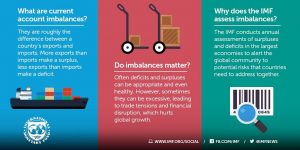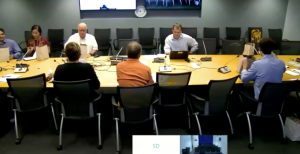Highlights:
- Private data: public good?
- The “privacy paradox”
- Poor deals and lost assets – why natural resource governance matters
- Whack-a-mole with secret owners
- SMS texts and social media for activism
- How to create a feminist open government
- Loose end
- TAI Weekly heads to the beach
- Missed our webinar on the Open Revolution? Watch the recording
In case you missed it…
Private data: public good?

Photo: geralt at Pixabay
Should private data be a public good? Mariana Mazzucato would argue yes – digital platforms and data are created by us and should belong to us all. According to her, by rethinking digital platforms as collective creations, we are able to shape the digital economy in ways that serve public interests. Rufus Pollock agrees, though making a distinction that only non-personal data should be open (see TAI Spotlight below to listen to his recent TAI Q&A for details). How to harness such data? Jonathan Gray, Carolin Gerlitz, and Liliana Bounegru make the case for “data infrastructure literacy” – the ability to work with data sets and “to account for, intervene around and participate in the wider socio-technical infrastructure through which data is created, stored, and analyzed.”
The “privacy paradox”
As we featured in a recent Weekly, if we see data more akin to labor, as “non-rival goods,” then the more we use data, the better for society. So how does data privacy fit into this scenario? Jennifer Lyn Morone argues we are becoming “data slaves” – willingly handing over intimate information to access free online services. Others highlight a “privacy paradox” – we demand data protection, but rarely lift a finger to ensure it. Listen to Vince Mitchell explain the reasons behind the paradox. Pair it with Richard Hartung’s six-step guide to protect personal data and Olivia Solon’s reminder that “anonymous” data might not be anonymous after all. Perhaps the best is drop offline altogether? (Though TechSoup reminds us that not all have the option to connect in the first place and lists ways the nonprofit sector can help digitally disadvantaged communities to connect.)
Poor deals and lost assets – why natural resource governance matters
According to World Bank estimates, Cote D’Ivoire lost more than a quarter of its natural assets over the past 25 years – a reflection of poor resource governance and exacerbating climate change. Nor is it just environmental assets being lost. The citizens of Myanmar aren’t getting a fair deal for its extractive commodities and the lack of transparency makes scrutiny difficult. So say the Natural Resource Governance Institute (NRGI) and Yangon-based Renaissance Institute – pointing to government losses of more than US$2 billion over the last 36 months. The culprit? Mismanagement of state-owned enterprises (SOEs), which Andrew Bauer labels as “black boxes.” The country has taken small steps to improve transparency but are these enough to pass the EITI standard?
So how to improve natural resource governance? Perhaps the mining sector can learn from the oil sector in protecting against transfer pricing abuses, as analyzed by the Center for Global Development. Disclosure helps, so encouraging that mining giant Rio Tinto repeat the new gospel and share why they support contract transparency. Tom Butler explains the position of their peers in the International Council on Mining and Metals. You can spot the industry laggards via the recent Oxfam America survey.
Whack-a-mole with secret owners
For our weekly roundup of tax and transparency stories: Global Witness launches a comprehensive analysis of the UK’s beneficial ownership registers. The main findings? An average of 1.13 registered beneficial owner per UK company and thousands of suspicious entries. The existence of the register does seem to be shaping behaviors – see these three shifts including a decline in the foreign use of Scottish Limited Partnerships that are now subject to disclosure (but matched by a corresponding upswing in use of such partnerships in UK territories that are not). Elsewhere, the Panama Papers’ ramifications rumble on – implicating former Hong Kong home affairs minister, Patrick Ho Chi-ping while leaks from Cyprus document the role of offshore companies in laundering millions of dollars stolen from Libya.
Between 1986 and 2018, corporate income tax rates declined by more than half (from 49% down to 24%) driven by profit shifting according to Tørsløv, Wier, and Zucman. No surprise to the International Monetary Fund following their look into international tax avoidance by multinational companies (with snappy infographics to match). Meanwhile, the International Budget Partnership shares a collection of research materials on tax expenditures in Latin America.

SMS texts and social media for activism
Social media can be a double-edged sword. Those worried about its threat to democracy have reasons to worry, judging by recent cases of fake news and hate speech in the Philippines, Egypt, Brazil, Myanmar, and India. Now another problem emerges – “fake science.” The International Consortium of Investigative Journalists has tracked the proliferation of hundreds of thousands of articles published in pseudo-scientific platforms.
Yet it’s not all bad – some organizations and communities are using social media for demonstrable good. A study in Uganda demonstrates how budget corruption information shared via SMS texts helped voters hold politicians accountable in elections. In Brazil, favelas are using social media to share their narrative and spark debates and local action.
It seems people can recognize both sides. In the US, the Pew Research Center found a majority of Americans perceive the power of social media for social change, specifically in providing marginalized sectors a platform for political engagement, while also recognizing its danger to distract from important issues and real action. So how do we harness the potential of social media while mitigating the risks? Shahla Ghobadi lists what every social media activist need to know. Amelia Acker suggests reading metadata while a former hacker shares tips for boosting cyber security.
How to create a feminist open government
The Open Government Partnership shares ideas on how to make the open government agenda fully inclusive of women and gender queer people. In the short-term, here are five ways to be feminists at events (perfect for the 2019 OGP Summit!).
Need more inspiration on open data? The Center for Open Data Enterprises released the US Open Data Toolkit to aid users in understanding and harnessing the value of open government data. Australia’s new Data Sharing and Release Bill outlines the country’s approach to managing risks of open data. The Open Data Institute investigates “data trusts” – a new model for increasing access to data while retaining trust. Africa Check provides a detailed guide on how to use Kenya’s Access to Information Act. And Nesta’s latest report on smart cities compiles case studies on ethical data collection and responsible technologies.
Loose ends
Abigail Bellows offers ten ways Washington can help curb corruption. New research suggests that informal practices are very good at twisting anti-corruption laws so that they can be used for corrupt purposes. Dig into six new papers detailing lessons from multi stakeholder initiatives. Finally, a call for foundations to listen and fund what NGOs really need.
TAI Weekly heads to the beach
The TAI Weekly will be taking an August break, but we will continue to share stories via Twitter and Facebook during the month. Stand ready for our next bumper issue on September 4.
In the meantime, you may want some beach reading of your own, so don’t be shy of the following long reads:

- Big Data for the Greater Good by Ali Emrouznejad and Vincent Charles
- Transparency, Society and Subjectivity by Emmanuel Alloa and Dieter Thomä
Podcast of the week:
TAI spotlight
- “We Shape Our Technology; Then Technology Shapes Us” |Omidyar Network
How can we ensure the tech we’re building is helping, not hindering us, from doing and being more? Sarah Drinkwater, Director at Omidyar Network shares her views on responsible tech and how it shapes us.
DFID addresses critical Daily Mail article and explains benefits of aid to Nigeria and India to the UK
- Big Problems Require Bold Solutions | MacArthur Foundation
Check out the Solution’s Bank, a searchable database of hundreds of bold solutions submitted to TAI member MacArthur Foundations’ 100andChange competition
Missed our recent events? We are excited to share recordings of our recent webinars!

Welcome to the Open Revolution: Rewriting the Rules of Data Ownership in the Digital Age
Online Q&A with Rufus Pollock dives deep into the potential of rethinking data ownership and information control in charting a more equitable and innovative future for all. How can the philanthropy sector support the Open Revolution? How is this relevant to the developing countries? What will an open world look like? https://bit.ly/2KedFyt
International participatory budgeting (PB) experts Brian Wampler and Stephanie McNulty share insights from their research on the impact of PB around the world, and the conditions that facilitate its effectiveness in developing world contexts.

Calls: Proposals, papers, speakers and course invites
- Hivos Consultancy: Open Contracting Benefits for Government and the Private Sector – July 31
- NOW-Us! Award 2018 – July 31
- Young Journalists Initiative (18th International Anti-Corruption Conference) – August 15
- Facilitating the Advancement of OGP’s Thematic Priorities – August 17
- Money Trail Grants– July 15, September 30, November 15
- FAT* 2019 Call for Papers – August 23
On the calendar
- Civic Tech: India 2018– August- November (Bangalore, Delhi and/or Mumbai, India)
- 4th Annual African Tax Research Network Congress – September 10-12 (Morocco)
- 3rd Open Data Research Symposium – September 25 (Buenos Aires, Argentina)
- Open Data Standards Day – September 26 (Buenor Aires, Argentina)
- The Future is Open: 5th International Open Data Conference – September 27-28 (Buenos Aires, Argentina)
- European Evaluation Society – Evaluation for More Resilient Societies– October 1-5 (Thessaloniki, Greece)
- Feedback Summit 2018 – October 4-5 (Washington, DC, USA)
- Accountable Now Annual Workshop 2018 – October 10- 12 (Berlin, Germany)
- 18th International Anti-Corruption Conference – October 22-24 (Copenhagen, Denmark)
- UN World Data Forum – October 22-24 (Dubai, UAE)
- BigSurv18 – Spain, Oct 25-27 (Barcelona, Spain)
- Public Sector Economics 2018 Conference – Fiscal Openness: Transparency, Participation and Accountability in Fiscal Policies – October 26 (Zagreb, Croatia)
- AEA Evaluation 2018: Speaking Truth to Power – October 29 – November 3, 2018 (Cleveland, OH USA)
- OGP Asia-Pacific Regional Meeting – November 5-6 (Seoul, Korea)
- Canadian Open Data Summit – November 7-9 (Ontario, Canada)
- Data4Good Conference – November 14 (Birmingham, UK)
- ODI Summit – Data | Value – November 20 (London, UK)
- Collective Impact Forum Convening – May 14-16, 2019 (Chicago, USA)
- Global Conference on Transparency Research – June 26 – 27, 2019 (Rio de Janeiro, Brazil)
